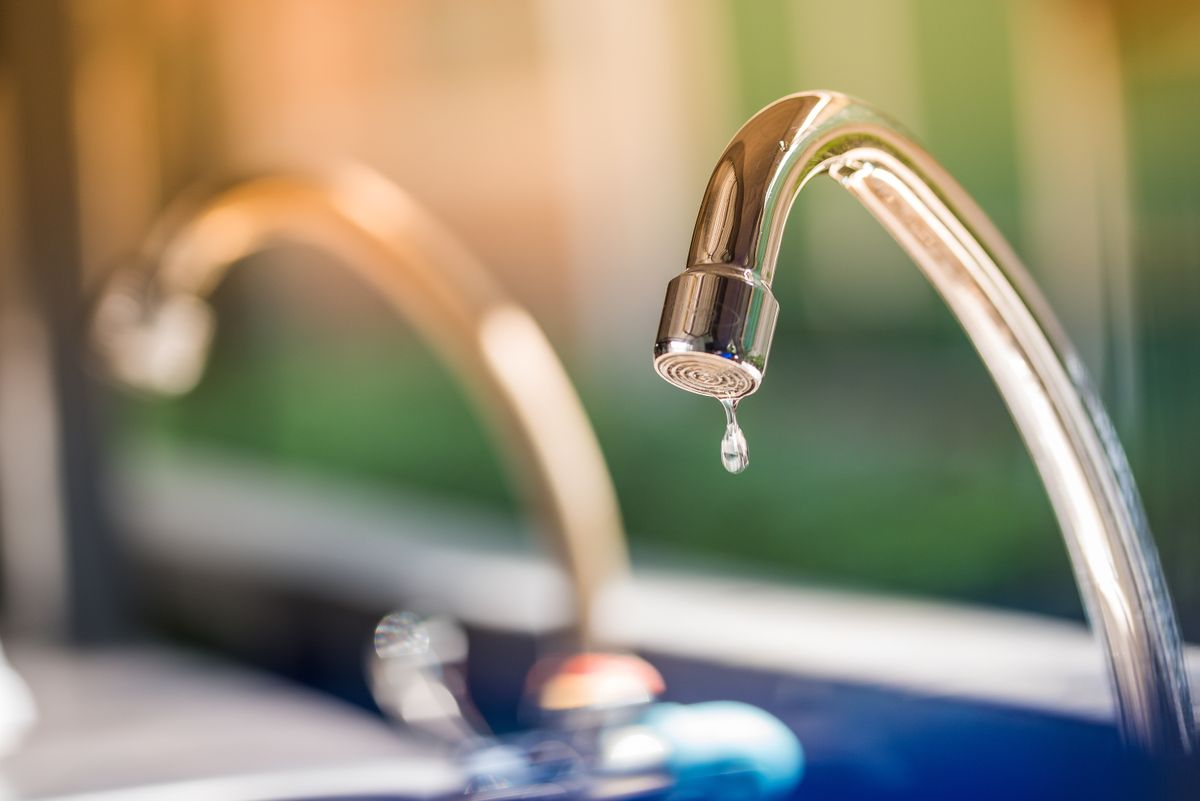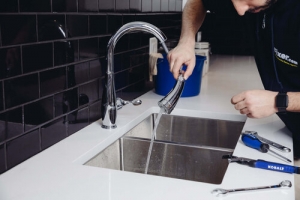Which It's Vital to Mend a Malfunctioning Faucet
Which It's Vital to Mend a Malfunctioning Faucet
Blog Article
In this article below you might get a good deal of reliable news in relation to Leaky Faucets: Why They Happen & What to Do About Them.

Dripping taps could appear like a minor aggravation, however their effect goes beyond just the aggravation of the noise. From wasting water to incurring unneeded monetary expenses and health threats, neglecting a leaking faucet can cause various consequences. In this article, we'll look into why it's vital to address this common house problem quickly and efficiently.
Wastage of Water
Ecological Effect
Dripping taps add considerably to water wastage. According to the Environmental Protection Agency (EPA), a solitary tap dripping at one drip per secondly can lose more than 3,000 gallons of water annually. This not only stress water sources but additionally influences environments and wildlife depending on them.
Step-by-Step Guide to Fixing a Dripping Tap
Tools Required
Prior to attempting to deal with a leaking faucet, gather the essential tools, consisting of an adjustable wrench, screwdrivers, substitute parts (such as washing machines or cartridges), and plumber's tape.
Common Tap Issues and Their Solutions
Identify the sort of tap and the specific problem causing the drip. Typical troubles include damaged washers, rusty shutoff seats, or defective O-rings. Describe producer directions or online tutorials for step-by-step assistance on fixings.
Financial Costs
Boosted Water Bills
Beyond the ecological impact, leaking taps can inflate water expenses considerably. The accumulated waste with time translates into greater energy expenses, which might have been stayed clear of with timely repair work.
Prospective Property Damage
Additionally, long term dripping can result in harm to components and surface areas surrounding the tap. Water buildup can create staining, corrosion, and even structural problems if left neglected, causing additional repair work expenses.
Health and wellness Worries
Mold And Mildew and Mold Growth
The continuous existence of dampness from a trickling tap develops an ideal environment for mold and mildew growth. These fungi not only compromise indoor air quality but additionally posture wellness risks, particularly for individuals with respiratory conditions or allergies.
Waterborne Diseases
Stationary water in trickling taps can come to be a breeding place for microorganisms and various other microorganisms, increasing the risk of waterborne diseases. Contaminants such as Legionella bacteria thrive in stationary water, possibly bring about significant ailments when consumed or breathed in.
DIY vs. Professional Repair
Pros and Cons of Do It Yourself Repair Service
While some might try to deal with a trickling faucet themselves, do it yourself fixings feature their very own collection of difficulties. Without proper expertise and devices, DIY attempts can aggravate the issue or result in insufficient repair work, prolonging the trouble.
Advantages of Employing a Professional Plumber
Working with an expert plumber ensures that the underlying source of the leaking faucet is resolved successfully. Plumbing professionals have the knowledge and equipment to identify and repair tap problems successfully, conserving time and minimizing the threat of further damages.
Environmental Duty
Private Payment to Conservation
Taking responsibility for dealing with leaking taps lines up with broader initiatives towards water conservation and ecological sustainability. Every individual's activities collectively make a substantial effect on maintaining valuable sources.
Lasting Living Practices
By prioritizing timely repairs and embracing water-saving habits, individuals add to sustainable living methods that profit both present and future generations.
Safety nets
Regular Maintenance Tips
To stop dripping taps, execute regular maintenance such as cleaning up aerators, evaluating for leaks, and changing worn-out parts without delay. Additionally, think about mounting water-saving devices or upgrading to a lot more reliable fixtures.
Significance of Prompt Services
Attending to dripping faucets as soon as they're seen prevents further water waste and possible damages, ultimately saving both water and money over time.
Influence On Property Value
Understanding of Well-Maintained Residential Property
Keeping a building in good condition, consisting of resolving upkeep problems like leaking faucets, enhances its viewed worth and charm amongst prospective purchasers or occupants.
Impact on Resale Worth
Features with well-maintained plumbing fixtures, including faucets, command higher resale values in the real estate market. Dealing with dripping faucets can contribute to a positive perception throughout building examinations and arrangements.
Verdict
Resolving a trickling faucet exceeds simple benefit; it's an important step toward preserving water, lowering economic prices, and guarding health and property. Whether via do it yourself repair services or expert assistance, taking action to deal with leaking faucets is a small yet impactful means to advertise accountable stewardship of resources and add to a healthier, extra lasting future.
How to Fix a Leaky Faucet: Step-by-Step Repair Guide
A leaky faucet may seem like a simple annoyance, but if it's not fixed promptly, that leak could cost hundreds to potentially thousands. From water damage to mold, mildew, and high water bills, even a tiny leak can be catastrophic if left unattended. Damage like this can even affect the overall value of your home, so it's important to take the right approach for leaky faucet repair. You may need the help of a plumber in some cases, but we've got a few tips you can try on how to fix a leaky faucet before calling the pros.
Four Faucet Types
When you're learning how to fix a leaky faucet, the first step is knowing what kind of faucet you're working with! There are four common types.
Cartridge Faucets
Cartridge faucets come in one- or two-handled varieties. In one-handled cartridge faucets, hot and cold water combines in a single cartridge. In the two-handled versions, hot and cold water are controlled separately and mixed in the faucet.
Ball Faucets
Ball faucets have a single lever you push up and down to adjust the pressure and rotate to change the temperature. A slotted metal ball controls the amount of water allowed into the spout.
Compression Washer Faucets
They're the oldest type of faucet, but they're still used in many homes — especially older ones. Compression faucets have two separate handles that, when turned, raise or lower the washer that seals a water valve. This valve stops water from flowing through the faucet when it is turned off.
Disc Faucets
Disc faucets rarely need to be repaired due to their maintenance-free design. The water flow is controlled by two discs — the upper one raises and lowers against a fixed lower disc, creating a watertight seal. If your disc faucet starts leaking, you may need to replace the seals or clean residue buildup from the inlets.
Fixing a Leaky Faucet
Step 1: Turn Off the Water
Whether you're learning how to fix a leaky bathtub faucet or how to fix a leaky kitchen faucet, always turn off the water supply to your working area when you're fixing a leak. The last thing you want is a flood added to your list of things to fix.
Look for the shutoff valves below your sink or around the tub and turn them clockwise to stop the water flow. If your faucet doesn't have shutoff valves, you may need to turn off the water for the whole house. Check to make sure it's off by turning the faucet on. If nothing comes out, you're ready to start the repair.
Step 2: Take Apart the Faucet
How you disassemble your faucet depends on the type of fixture you have. You can use a flathead screwdriver to remove the caps on top of the handle or handles for cartridge and compression faucets. Inside, you should see handle screws. Unscrew these with a screwdriver to remove the handle.
Disc- and ball-style faucets will typically have an inlet screw near the handle, and removing that will reveal the interior of the faucet.
Detach the Valve Stem
For cartridge- and compression-style faucets, you'll see the inner valve stem or cartridge once you remove the faucet handles. If you have a compression faucet, unscrew the brass valve stem. If you have a cartridge faucet, pull out the cartridge. If your cartridge has been in place for a while, it may require some tools or extra force to remove it due to mineral deposits.
Examine and Replace Parts
Once you've removed the parts, check them out to confirm what needs to be replaced. You may see corroded rubber washers, O-rings, stems, or cartridges. On a ball-style faucet, check the seats and springs for damage.
If you need to repair a leaky disc faucet, check the inlet and seals on the lower disc.
Once you determine what parts must be replaced, visit your local hardware store. Bring the damaged parts with you to ensure you can purchase the correct components to replace them.
Clean Valves and Faucet Cavity
If you've removed a stem or cartridge, you may notice mineral buildup in the faucet's threads. Use white vinegar to clean the valve seat by soaking it for a few minutes, then scrub it away with a soft toothbrush and rinse with warm water. You can also clean the interior of the faucet in the same way.
Reassemble the Faucet
Once your faucet is cleaned and the required parts have been replaced, it's time to reassemble it. Put the pieces back together and slowly turn the water supply back on. Doing this slowly is crucial because too much initial water pressure can damage the new hardware you've just installed.
https://homewarranty.firstam.com/blog/how-to-fix-leaky-faucet

Do you really like reading about Leaky Faucets: Why They Happen & What to Do About Them? Leave a comment further down. We will be glad to see your insights about this write-up. We are looking forward that you visit us again in the future. Appreciated our blog posting? Please quickly share it. Help someone else locate it. We value your readership.
Report this page